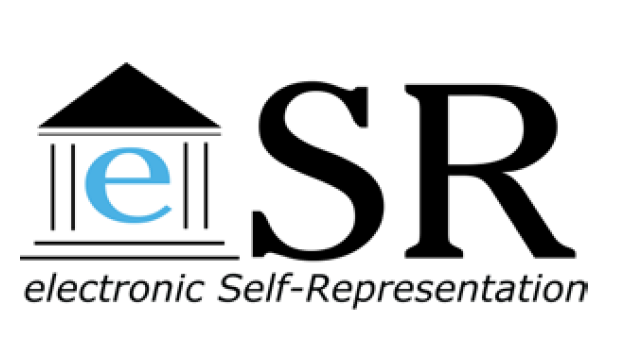Understanding Bankruptcy
The information outlined below is intended to give debtors and creditors an introduction to the bankruptcy process and laws. If you are considering filing bankruptcy, you may also be interested in viewing the video presentations found on the United States Courts Web site that describe the bankruptcy process and your options. These videos are available in both English and Spanish. You should also read the information provided on the Before You File page on this Web site. Links to additional bankruptcy resources can also be found on the Bankruptcy References page.
Filing Bankruptcy in New Mexico
"FILING BANKRUPTCY IN NEW MEXICO" - (English version) (Spanish version) - This informative brochure was prepared by the State Bar of New Mexico, March 17, 2008.
►Bankruptcy Basics ►Filing without an Attorney
►Bankruptcy Glossary ►Overview of Bankruptcy
Self-Help Center
Our Self-Help Center is available Monday through Friday between 8:30 AM and 4:00 PM MST to assist self represented filers.
The telephone number is 505-415-7999, option 1. The Self-Help Center is located on the 3rd Floor of the Pete V. Domenici United States Courthouse, 333 Lomas Blvd. NW, Suite 360, Albuquerque, NM.
Free Consumer Debt Workshop
Free monthly workshop offered via zoom: https://www.sbnm.org/For-Public/Workshop-Legal-Clinics
Legal Advice
Employees of the Clerk's Office and the Judge's staff are not permitted to give legal advice or recommend a particular attorney. If you need legal advice, contact one of the following:
- State Bar General Referral Program, (505) 797-6066.
- Legal Resources for the Elderly Program in New Mexico, (505) 797-6005 or (800) 876-6657 — age 55 and older.
- Your local or state bar association.
The prohibition against giving legal advice applies to case trustees and their staff, as well as the United States trustee and staff of the Office of the United States trustee.
Corporations & Partnerships
Other than filing proofs of claim, reaffirmation agreements, request for unclaimed funds, or participating at a Section 341 meeting of creditors, a corporation or partnership must be represented by an attorney authorized to practice in the bankruptcy court. See NM LBR 1074-1.
Role of Trustees
There are two different types of trustees involved in bankruptcy cases: case trustees and the United States trustee; each plays a different role in the bankruptcy process.
Case Trustee
In every chapter 7, 12, and 13 case a case trustee is appointed when the bankruptcy petition is filed. This trustee does not represent the debtor or any individual creditor. Rather, the trustee has independent rights and duties that are set forth in bankruptcy code sections 323, 327, 341, 343, 345, 363, 364, 365, 704 (Chapter 7 cases), 1202 (Chapter 12 cases) and 1302 (Chapter 13 cases).
Case trustees and their staff are not permitted to give legal advice to the debtor or the creditors.
United States Trustee
The Office of the United States Trustee (UST) oversees the administration of the bankruptcy laws on behalf of the Attorney General of the United States. The UST has standing to raise any issue and be heard in any case under the bankruptcy code. Among the Trustee's duties are selecting and supervising the panel of case trustees, monitoring the progress of chapter 11 reorganization proceedings, monitoring applications for compensation, and notifying the United States Attorney of suspected bankruptcy crimes. See 28 U.S.C. Section 586.
The United States trustee and staff of the Office of the United States Trustee are not permitted to give legal advice to the debtor or the creditors.
Contacting a Judge
If you are involved in a bankruptcy case or proceeding, you are prohibited from contacting a judge. Federal Bankruptcy Rule 9003 prohibits parties from "ex parte" meetings or communications with the court concerning matters affecting any particular case or proceeding. "Ex parte" means from one party, without notice to or argument by any person adversely interested. For example, a telephone call directly to the judge would be a prohibited ex-parte contact. Similarly, a letter to the judge, without copies to opposing parties, would be a prohibited ex-parte contact.
What Your Signature Means
If you are a debtor, your signature on the petition and statements and schedules constitutes an oath that the information is accurate and complete. The Bankruptcy Code provides serious penalties for false statements. See Section 727(a)(4)(A) for an example, which denies a discharge for false oaths. Title 18 of the United States Code (Crimes and Criminal Procedure) Section 152 also makes it a crime to knowingly and fraudulently conceal property, make a false oath or account, or make a false declaration or verification. If you are a creditor, 18 U.S.C. section 152 makes it a crime to knowingly and fraudulently present a false claim.
For both debtors and creditors, Federal Bankruptcy Rule 9011 states that for any pleading presented to the Court (whether by signing, filing, submitting, or later advocating) the party is certifying to the Court that it is not being presented for an improper purpose (e.g., delay or harassment) and that the pleading is legally warranted and factually supported. The Rule authorizes sanctions for its violation.


